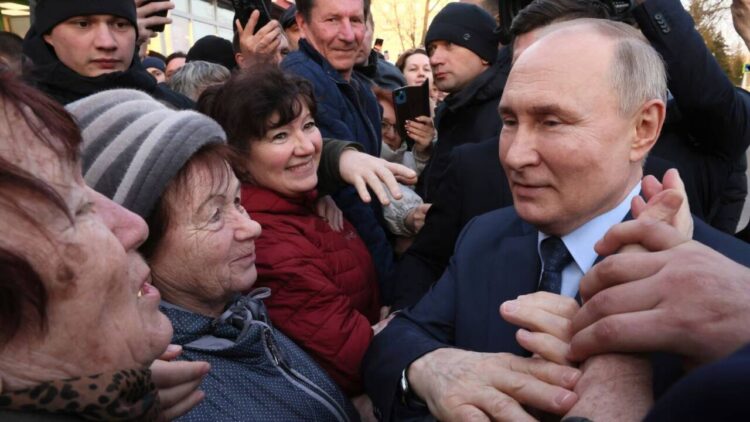On the second day of voting, Russian citizens engaged in a presidential election that is widely expected to secure Vladimir Putin’s grip on power for another term. The absence of credible opposition figures and the suppression of dissenting voices have characterized Putin’s rule, spanning nearly 25 years.
Amidst allegations of stifling independent media and curbing fundamental rights, Putin’s primary adversary, Alexei Navalny, met his demise in February under mysterious circumstances while incarcerated in an Arctic prison. Other dissenters have faced similar fates, either imprisoned or exiled.
Facing token opposition from Kremlin-endorsed candidates, Putin’s challengers refrained from criticizing his policies or the ongoing conflict in Ukraine, which Putin frames as a defensive stance against Western aggression. Despite facing sanctions, Russia’s economy has shown resilience, bolstered by the robust performance of its defense industry amid the prolonged conflict in Ukraine.
While the opposition has encouraged disgruntled citizens to participate in the election as a form of protest, Putin has touted military successes in Ukraine as part of his campaign rhetoric. The conflict in Ukraine has intensified, with both sides engaging in cross-border skirmishes.
Despite reports of minor disruptions, including vandalism at polling stations, Russian officials maintain that the voting process is proceeding smoothly. However, the absence of significant international observers raises concerns about the transparency of the electoral process.
Critics from Western nations have denounced the election as a mockery of democracy, highlighting the lack of genuine alternatives and independent oversight. European Council President Charles Michel sarcastically congratulated Putin on social media, underscoring the absence of opposition, freedom, and choice in the electoral landscape.
















Comments